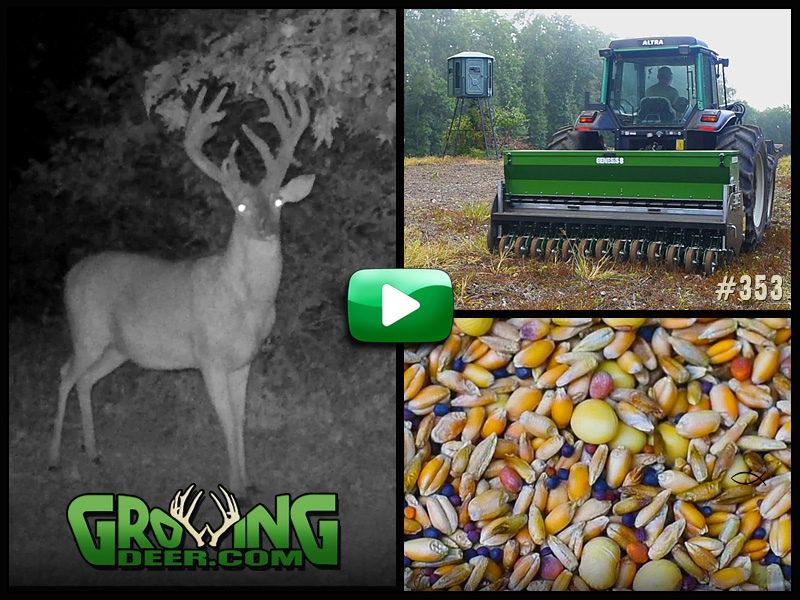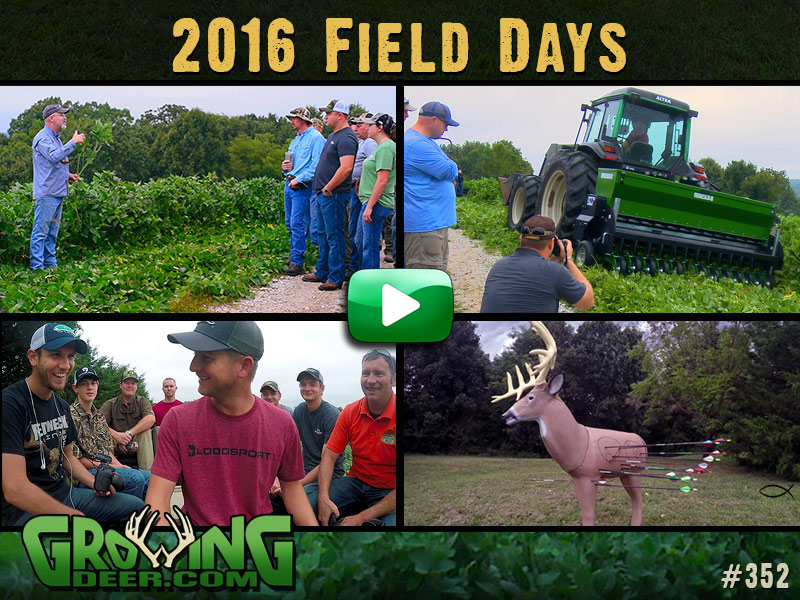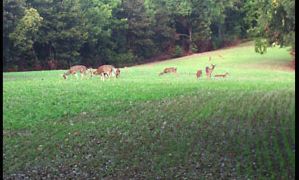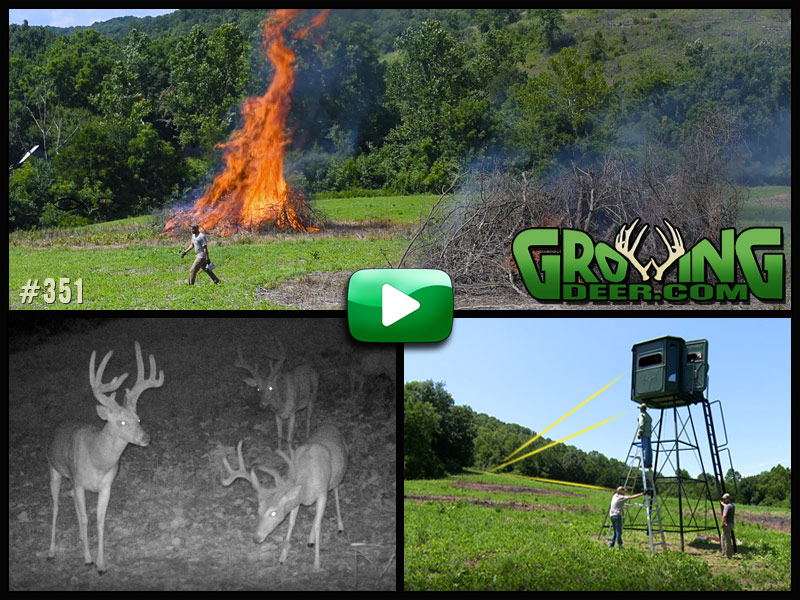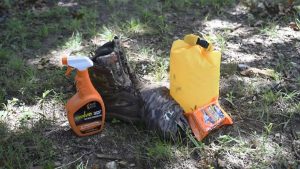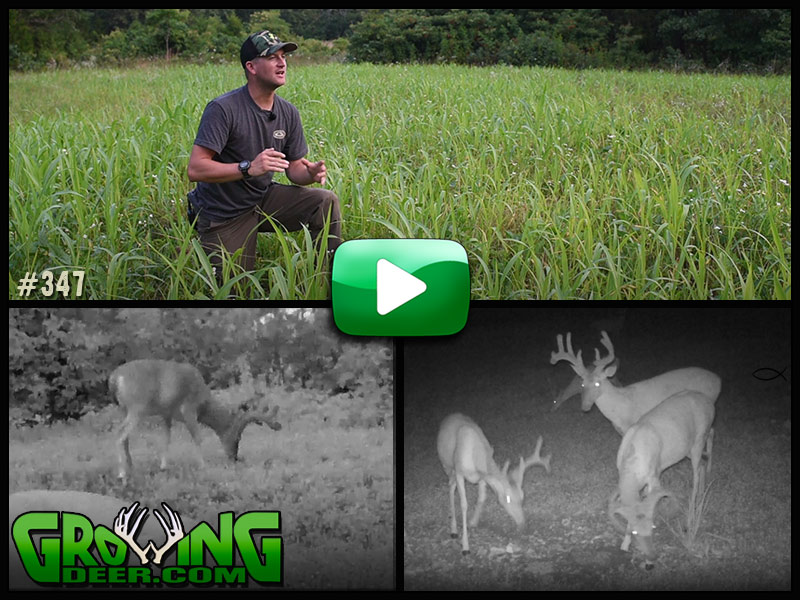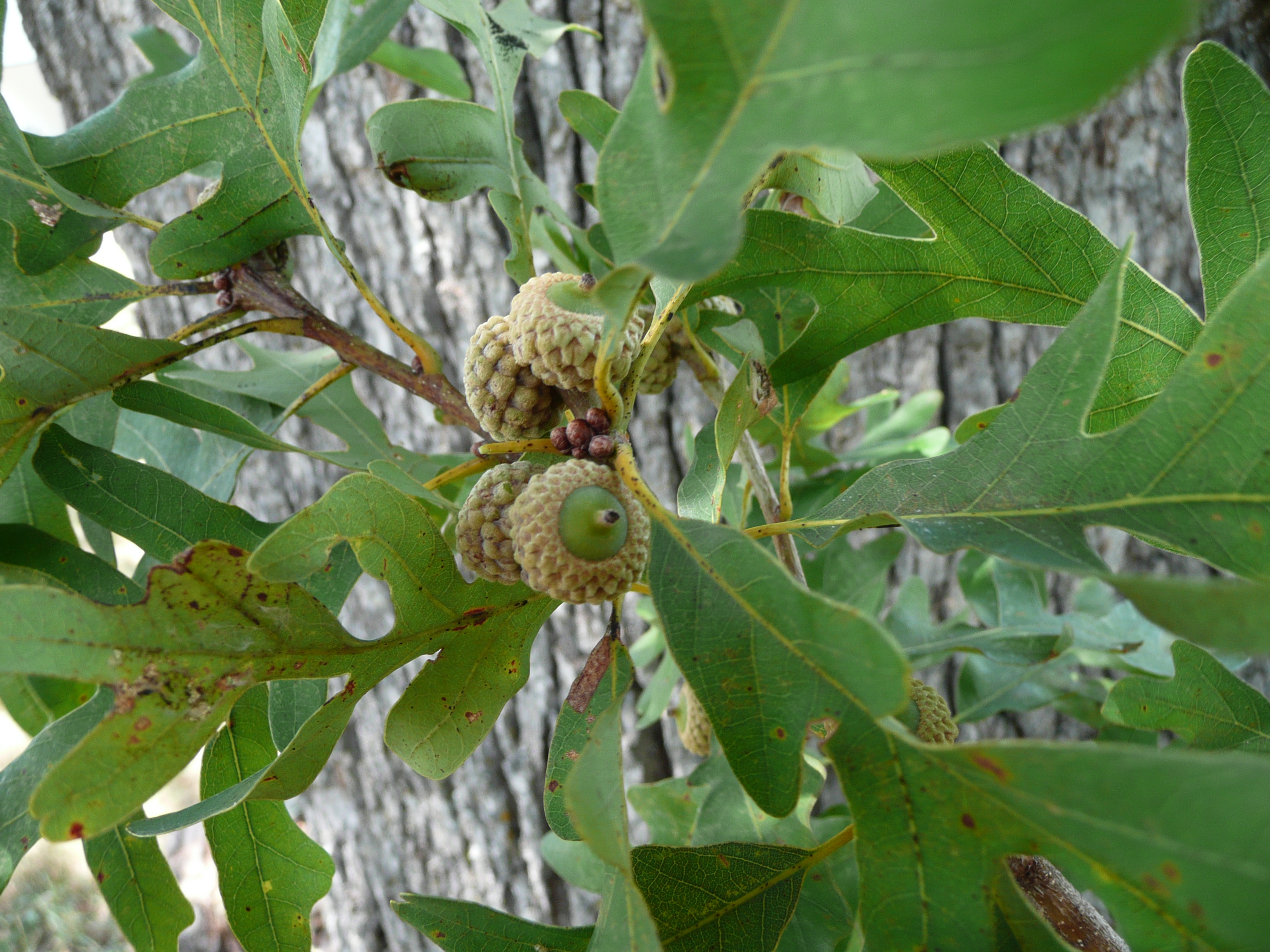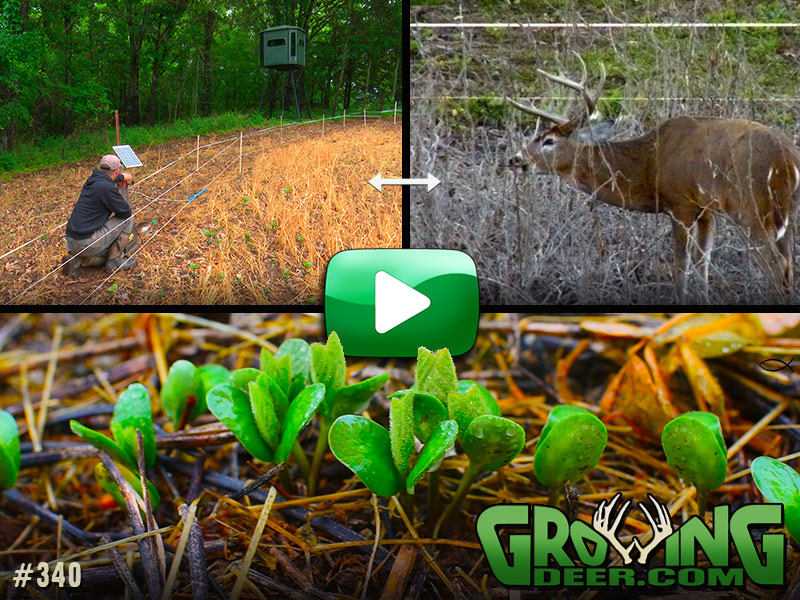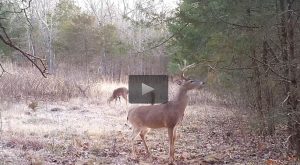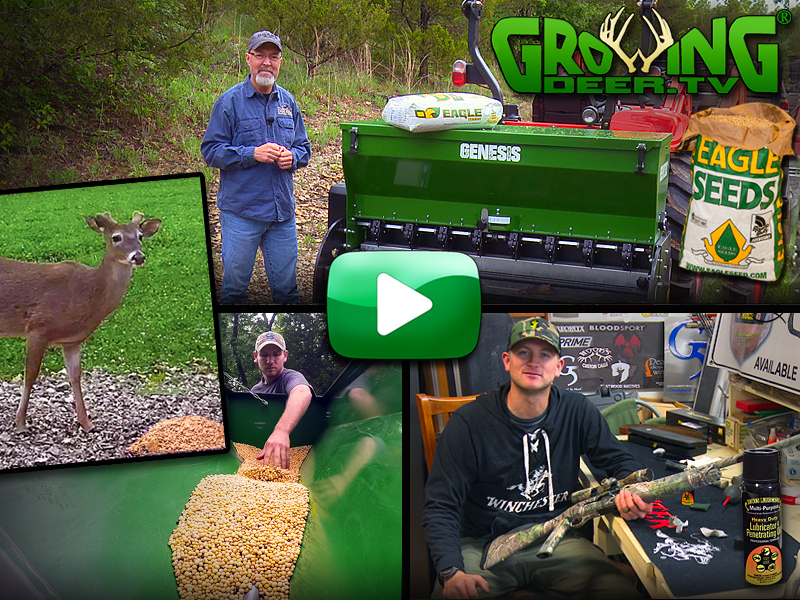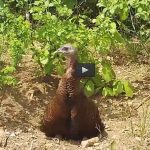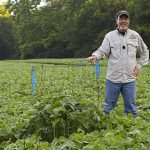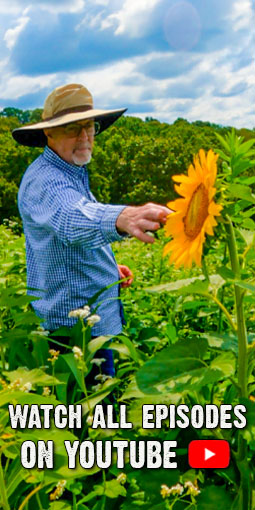Category: Food Plots
Quality Food Plots

Deer may respond differently to food plots from season to season.
Deer season is over and it’s time to pause and reflect on last year’s highs and lows. Whether you had a great season or things didn’t go exactly as planned, your management practices strongly influenced the outcome of your hunts. It’s important to remember that what works on one property may not work on another. Regardless of where you hunt, you should focus on getting deer the nutrients that they need to grow healthy and strong. You can create the opportunity for a memorable hunting season next fall by maintaining great food plots during the coming year.
We’ve talked to several people who experimented with a new food plot last year and were disappointed with the results. If they planted a quality forage variety Grant’s advice to them was to persevere and let the deer learn to eat at the plot. Depending on your region, deer may never have encountered what you planted. Given enough time, one curious deer will start to nibble on the forage and the rest will follow suit. Forage grown but not consumed isn’t wasted! It will decompose and increase the organic matter which is critical for quality soils!
Poor soil quality can make any forage taste bitter. Building a good layer of soil over time can do wonders for food plots. It’s important to pay attention to how deer responded to your plots last season, but if you tried something new and it didn’t work out, it may be worth the time to try that forage variety again.
Enjoy Creation,
Jessica
Fall Food Plot Fanatics – Episode #353
New Video
Food plots are one of the best tools we use to manage and hunt whitetails. Dry weather and rocky soils can throw a curve ball into your fall planting plans. Watch as we share tips and techniques that help us get the most out of each plot despite these challenges!
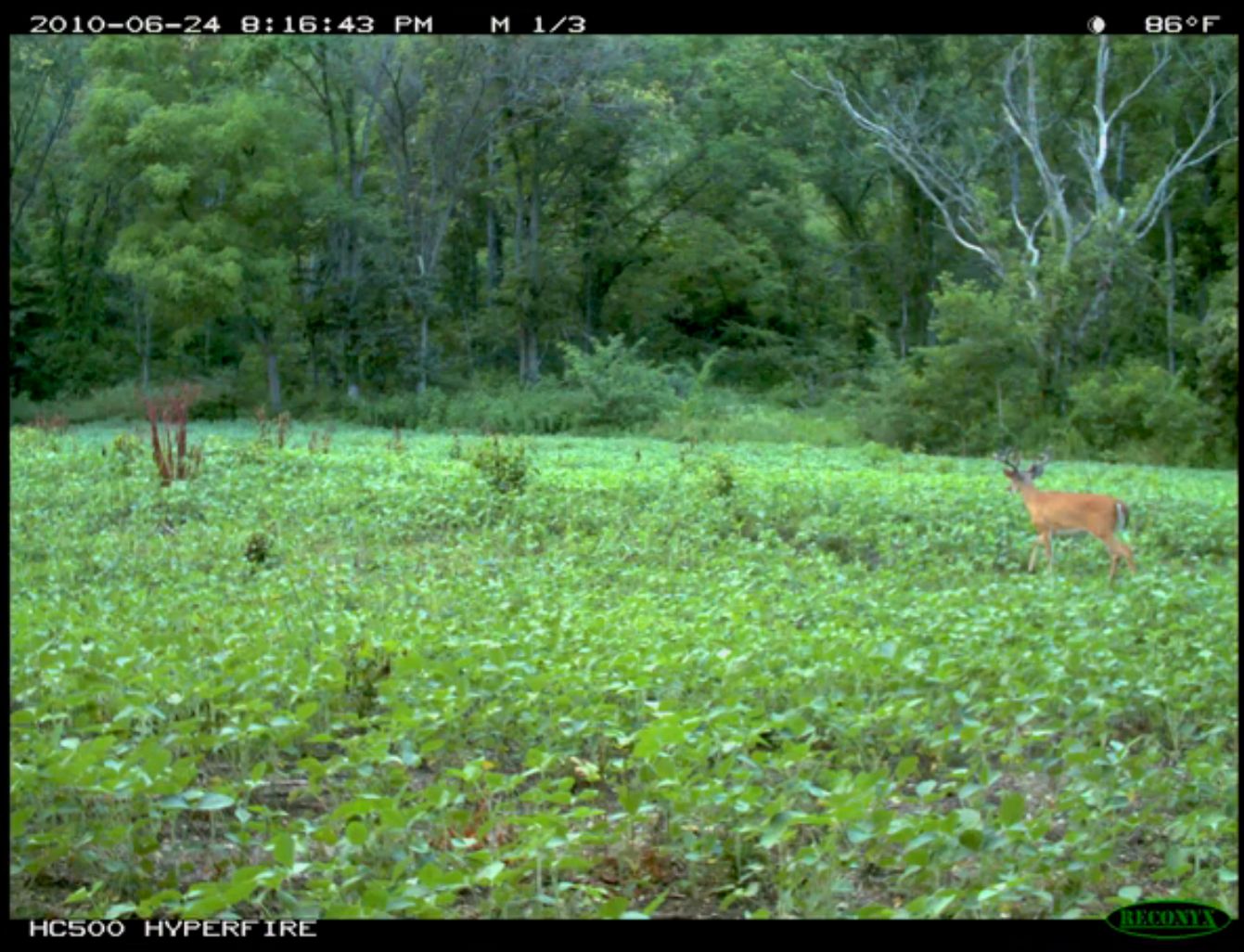 Short Clip:
Short Clip:
How do you capture your MRI during season? Check out this strategy for the upcoming season.
New Weekly Blog: Fall Time Clover Management
How do you manage your clover plots during the fall? Check out the technique we use to get more forage and less weeds out of our clover plots!
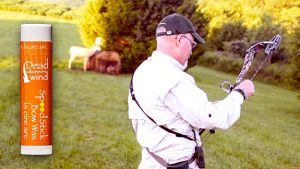
Tip of the Week:
You’ve been practicing with your bow all summer long, keep all strings and cables in great working order. Apply bow wax before season opens!
Fall Time Clover Management
Last week we discussed fall food plots and the specifics of how planting a mixture can serve as a time released food plot during hunting season. Having an attractive food source throughout the season is important to holding deer on your property.
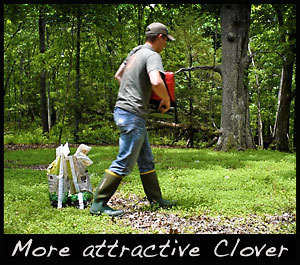 Continuing the theme of food plots, this week is all about fall time clover management. If you have clover plots, then you have most likely experienced the struggle to keep them weed free. Herbicide applications can be ineffective during certain stages of weed growth. Mowing can be time consuming as multiple mowings may be needed. To limit the amount of weed growth in our plots we plant a cover crop of Monster Wheat right into our stand of clover each fall.
Continuing the theme of food plots, this week is all about fall time clover management. If you have clover plots, then you have most likely experienced the struggle to keep them weed free. Herbicide applications can be ineffective during certain stages of weed growth. Mowing can be time consuming as multiple mowings may be needed. To limit the amount of weed growth in our plots we plant a cover crop of Monster Wheat right into our stand of clover each fall.
Clover is a legume; this is a fancy term meaning it fixates nitrogen and returns it into the soil. The excess nitrogen that clover does not use is often taken advantage of by noxious weeds. This is why weeds can be so prevalent in stands of clover. Weeds are most present in clover plots when the clover is dormant. During the fall the wheat takes advantage of the nitrogen produced by the clover, instead of the weeds doing so the following spring . In addition, wheat is another great forage for deer that provides an additional attractant to a food plot.
During the following spring the wheat will grow and produce a head. During certain stages of maturation, the wheat head is highly sought after by both deer and turkeys. By planting a cover crop of wheat the excess nitrogen is used to benefit your plots health and increase the amount of forage available to the local deer herd. This is a win-win for deer hunters and managers. Fight weeds by planting more food for deer!
GrowingDeer together,
Matt
Hunting Strategy Maximized – Episode #352
New Video
This week follow along as we show some of the hunting strategies shared at our 6th annual Fall Field Day event. It’s all covered, from early to late season hunting tactics, scouting, food plots, habitat management, and much more!
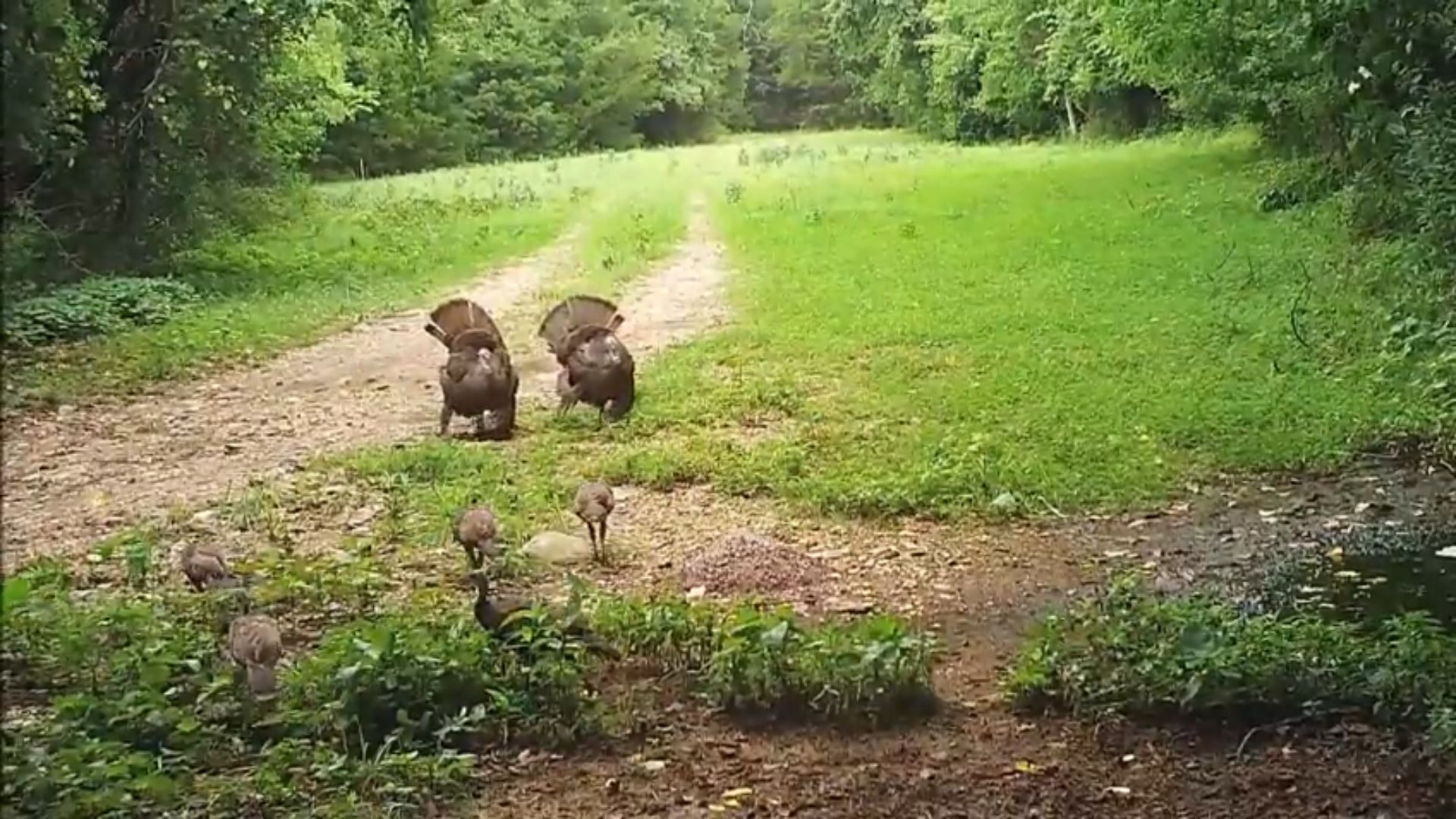 Short Clip:
Short Clip:
Monkey see…monkey do! Check out what our Reconyx captured last week!
New Weekly Blog: Time Released Food Plots
Are you planting your fall food plots yet? Here are some tips to consider when selecting food plot seed to attract deer into bow range.
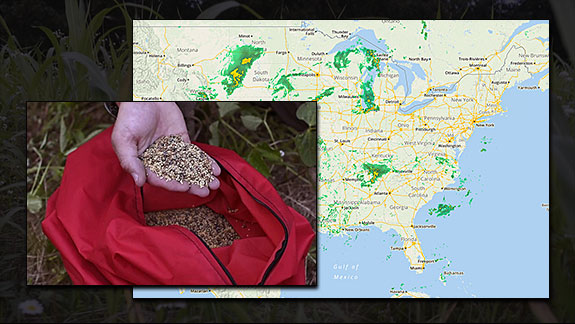
Tip of the Week:
Be watching the local forecast! It’s planting season, be sure rain is in the forecast prior to planting.
Time Released Food Plots
Each year thousands of hunters take to the deer woods to plant their food plots. The options or varieties of seeds to plant are endless. Our food plot goal is to provide attractive forage for deer so they will return to the plot all season long. This makes patterning deer easier. Some varieties of plants tend to attract deer better during specific times of the fall, like corn and clover. To increase the odds of patterning a mature buck we prefer to plant a fall blend called Broadside.
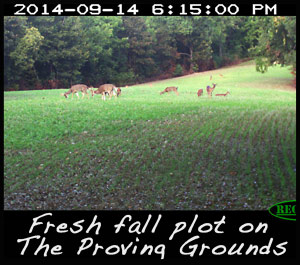 This blend is comprised of four different seed varieties, soybeans, wheat, turnips, and radishes. All of these selected species have a specific roll throughout the fall and winter. As a new, tender sprout soybeans are highly attractive to deer. So the purpose of the soybean is to attract deer during the early season when the soybeans are the most palatable. These soybeans are not intended to produce pods, but to provide a high quality nutritional food source as the rest of the stand establishes itself. Once the soybeans are browsed down, this makes way for the wheat to thrive. Under the right conditions wheat can grow and add serious tonnage to the plots. In our region wheat will continue to grow through much of the winter even when heavily browsed. This makes wheat an important addition to the mixture. As the cooler temperatures begin to set in the turnips and radishes then become highly attractive to deer. Deer will browse the green tops of the turnips while the bulbs and tubers grow in the soil. When old man winter comes to town the explosion of wheat, turnips, and radishes will keep the deer coming back for more.
This blend is comprised of four different seed varieties, soybeans, wheat, turnips, and radishes. All of these selected species have a specific roll throughout the fall and winter. As a new, tender sprout soybeans are highly attractive to deer. So the purpose of the soybean is to attract deer during the early season when the soybeans are the most palatable. These soybeans are not intended to produce pods, but to provide a high quality nutritional food source as the rest of the stand establishes itself. Once the soybeans are browsed down, this makes way for the wheat to thrive. Under the right conditions wheat can grow and add serious tonnage to the plots. In our region wheat will continue to grow through much of the winter even when heavily browsed. This makes wheat an important addition to the mixture. As the cooler temperatures begin to set in the turnips and radishes then become highly attractive to deer. Deer will browse the green tops of the turnips while the bulbs and tubers grow in the soil. When old man winter comes to town the explosion of wheat, turnips, and radishes will keep the deer coming back for more.
We plant this blend in our plots each year and deer follow the same cycles each season. The Broadside blend serves as a time released food plot throughout the hunting season. The plot produces an attractive food source throughout the entire fall. It is important to never clean the table and not offer food in your plots. If your plots are barren, then the local deer herd will be seeking an alternative food source. This could be your neighbor’s food plot! Keep your food plots growing and attractive this fall, hopefully you will be feasting on venison and not tag soup!
Chasing Whitetails,
Matt Dye
Taking Pre-Season Preparations to New Heights – Episode #351
New Video
We take our hunting strategies to new heights! Watch as the team puts the final touches on a food plot renovation just in time for deer season. Plus, our archery practice is taken to the next level. It’s Prime time to dial in your archery equipment. See how we plan to make every shot opportunity count!
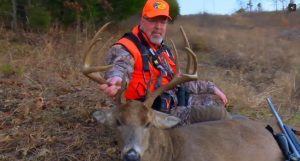 Short Clip:
Short Clip:
Grant settles the BIG DEBATE! Watch to see Grant’s opinion on calibers for deer hunting.
New Weekly Video Blog: Early Season Scent Reduction Tips
We dive further into scent control this week! See the steps we take in the field to remove AND create less foreign odors.
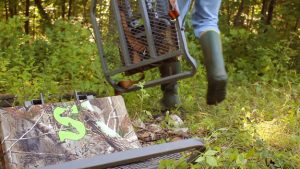
Tip of the Week:
The biggest trophy this season is returning home safely. Be sure to check all treestand straps and safety gear before season starts!
Quick Food Plots – Episode #347
New Video
An experiment with a new technique for planting food plots paid off with very promising results: see this innovative alternative for quick and easy fall food plots! Plus, we share what to look for to create dynamite hidey hole food plots. Click here to watch all this along with off season practice techniques that help us become more accurate bow hunters at crunch time!
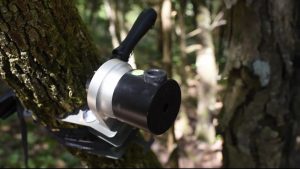 Short Clip:
Short Clip:
Watch as Adam gets his hands on the new hunting camera arm systems from Fourth Arrow! They are a real game changer. See the lightweight carbon arm and the versatile shoulder that works even in the most challenging of tree stand set-ups!
New Weekly Video Blog: Pre-Season Preparation In Timber Country
Our pre-season scouting continues! Watch as Matt lays eyes on a food source that will strongly influence our deer hunting strategy this fall.
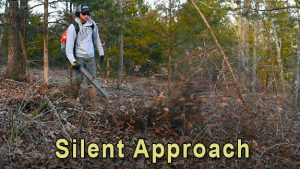
Tip of the Week:
Do you access your stands silently? This is important! Now is the time to blow trails to your stand sites.
“Messy Food Plots”: Bigger Antlers, Better Hunting – Episode #340
New Video
This week we share a couple of our strategies for protecting and improving our food plots. First up: a tip on how “messy plots” are designed to protect food plot soil. Better soil means better food plot crops, bigger antlers, and healthier does! Plus, we’re investing the time now to make a bow hunting hot spot for the late season. Watch this video to see this and more!
Short Clip:
Miss deer season too? Fight the urge with this clip of a buck working over a scrape!
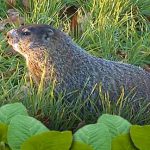
Tip of the Week:
Groundhog watch! Be on the lookout! Groundhogs can cause serious damage to your plots!
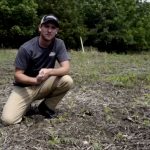 New Weekly Video Blog: Better Soil Equals Healthier Deer
New Weekly Video Blog: Better Soil Equals Healthier Deer
Want to grow healthier deer and bigger antlers? Watch Matt explain how to start from the “ground up!”
Keys To Success For Small Food Plots – Episode #339
New Video: Small Food Plot Secrets
It’s time to plant! Watch and learn our techniques for planting small, hidey-hole food plots. These methods will make bow season much more successful! Small food plots make great stand locations and are an easy tool hunters can create and use.
Short Clip:
Splish, Splash – I’m taking a bath! Check out this hen turkey cleaning herself in the dirt!
Tip of the Week:
Don’t get fooled! Learn how much deer are browsing your plots. Be smart and place a utilization cage to monitor food plot browse and success.
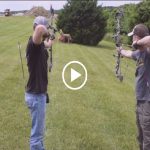 New Weekly Video Blog: Time For Archery!
New Weekly Video Blog: Time For Archery!
It’s prime time to start shooting bows: Deer season is just a few months away so the preparation begins now! Get your summer time archery practice sessions started right. The last thing you want to do is form bad habits. I recommend practicing from a distance you feel very comfortable with. Starting off here will allow you to focus on your pre shot routine, step by step. This type of focus minimizes the chance of bad habits forming. As you continue with this method of practice, you will build muscle memory. Both your brain and your muscle need to go through the motions time and time again to ensure lethal shots are executed during bow season…
Strategic Food Plot Management
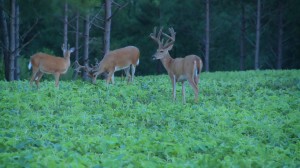
Soybeans are easy to grow about anywhere and provide great nutrition for deer.
This week has been an important week for us here at GrowingDeer. It’s not only the last week of turkey season, but the Eagle Seed soybeans are going in the dirt! Planting season is here. With that comes an appreciation of the hard work put in months ago.
Last August we planted many of our food plots in the Broadside blend. This is a fall mixture of soybeans, wheat, turnips, and radishes. This variety helped feed the wildlife throughout the winter. The Broadside has now been terminated in preparation for the new soybeans. Even though the Broadside is no longer living that doesn’t mean it does not serve a purpose.
As we are drilling the new soybeans into the Broadside blend it is laying down on top of the soil. This is all part of the plan! With the vegetation covering the soil, critical soil moisture is conserved. The long range forecast of rain is nearly impossible to predict. Rain could be a few days or weeks away. It’s important to take steps to conserve soil moisture. In addition, the vegetation is shading the ground. This helps to fend off weed growth or competition with the newly planted soybeans. Since the Broadside blend has been terminated it will slowly begin to breakdown. As it does this, nutrients will leach back into the soil. When this happens those nutrients are readily available for the new soybeans to uptake and benefit from.
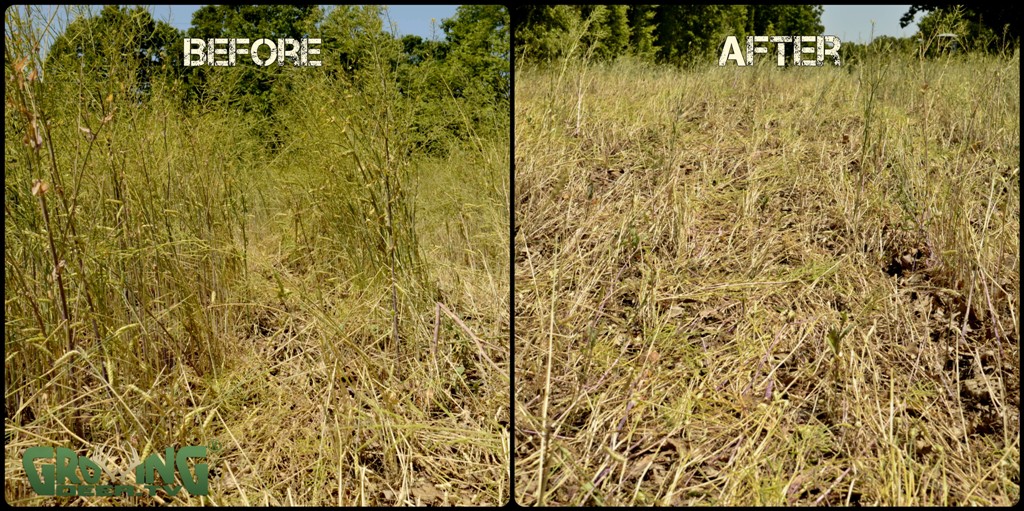
Simply planting a fall blend in your food plots and following this strategy can increase productivity in your next crop. The better the soil the better food plots will grow. When food plots are more productive the quality of the local deer herd will increase. Deer management should start at “ground level”.
Managing deer together,
Matt



